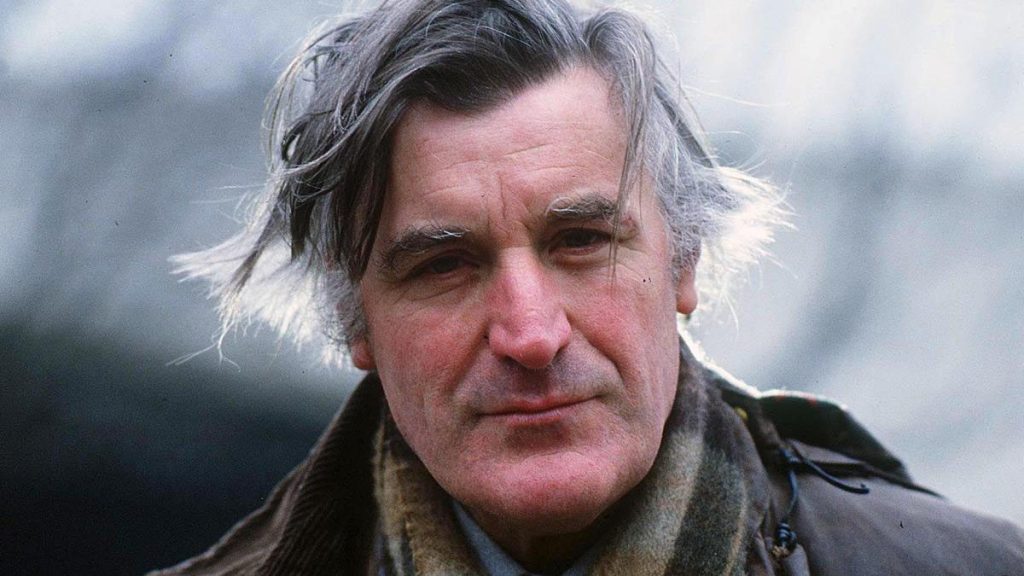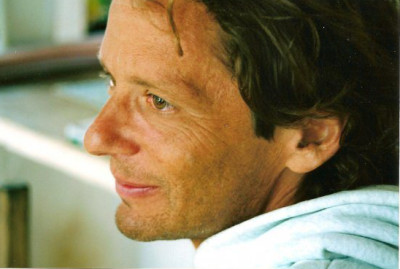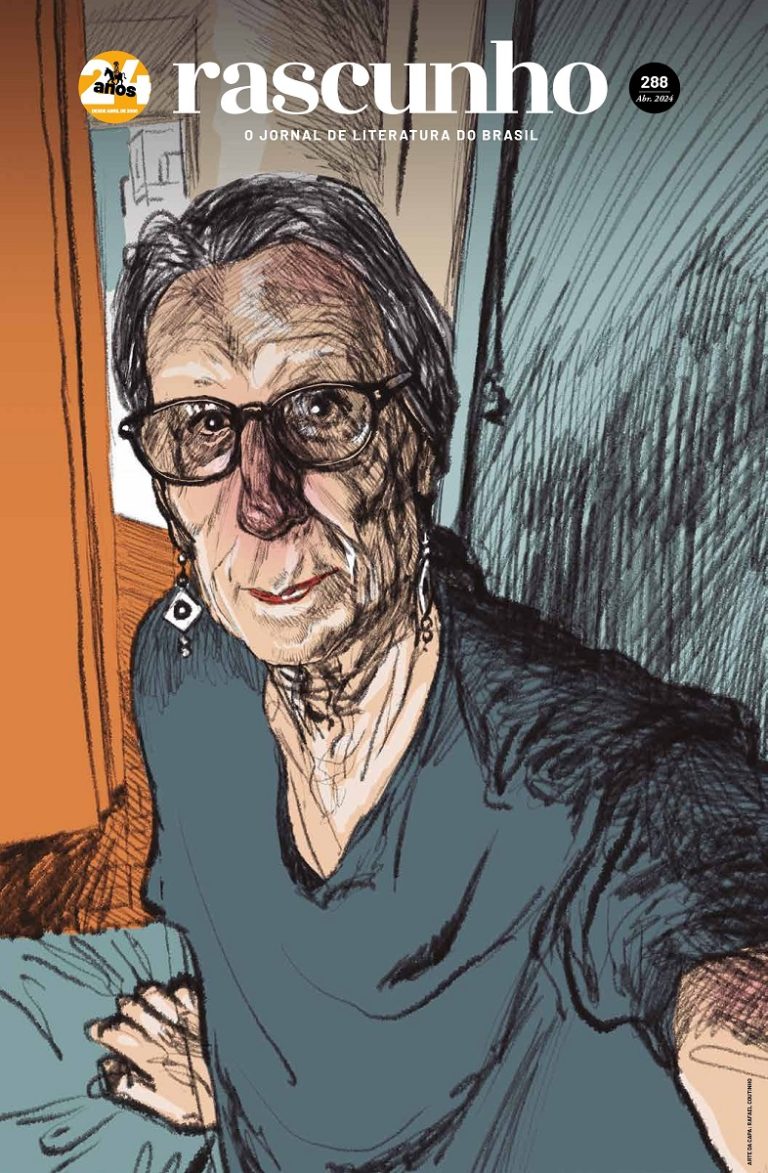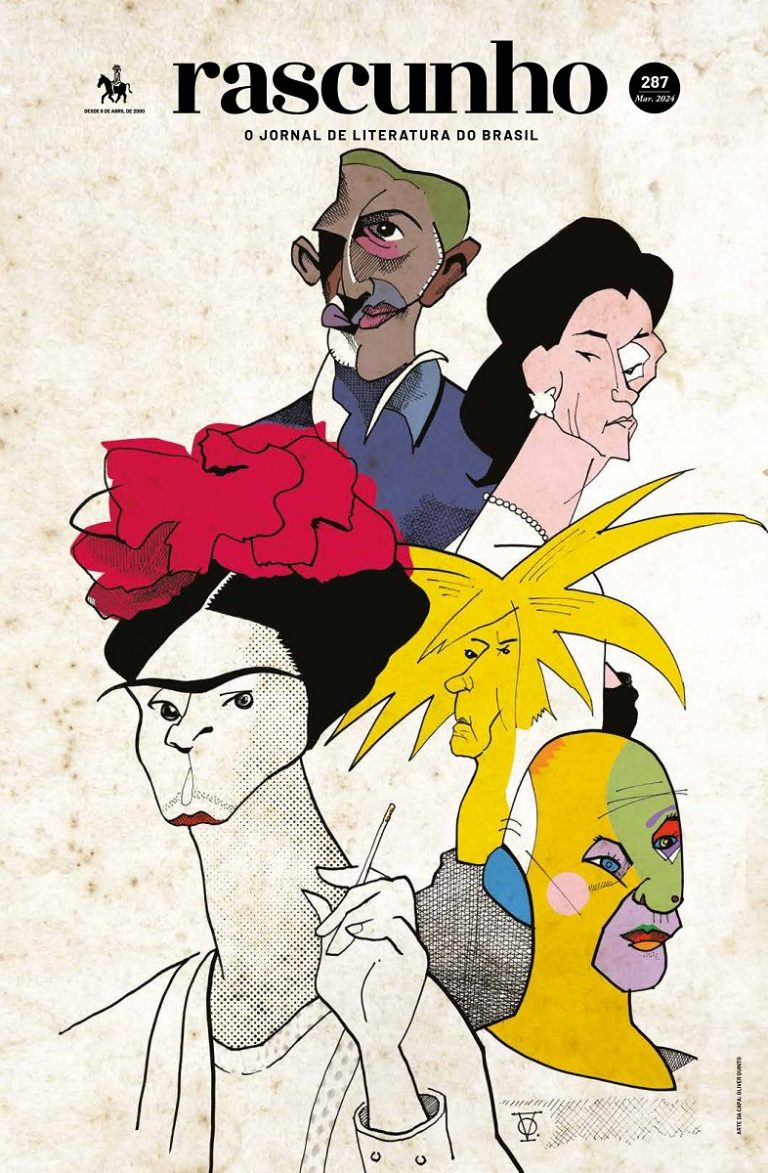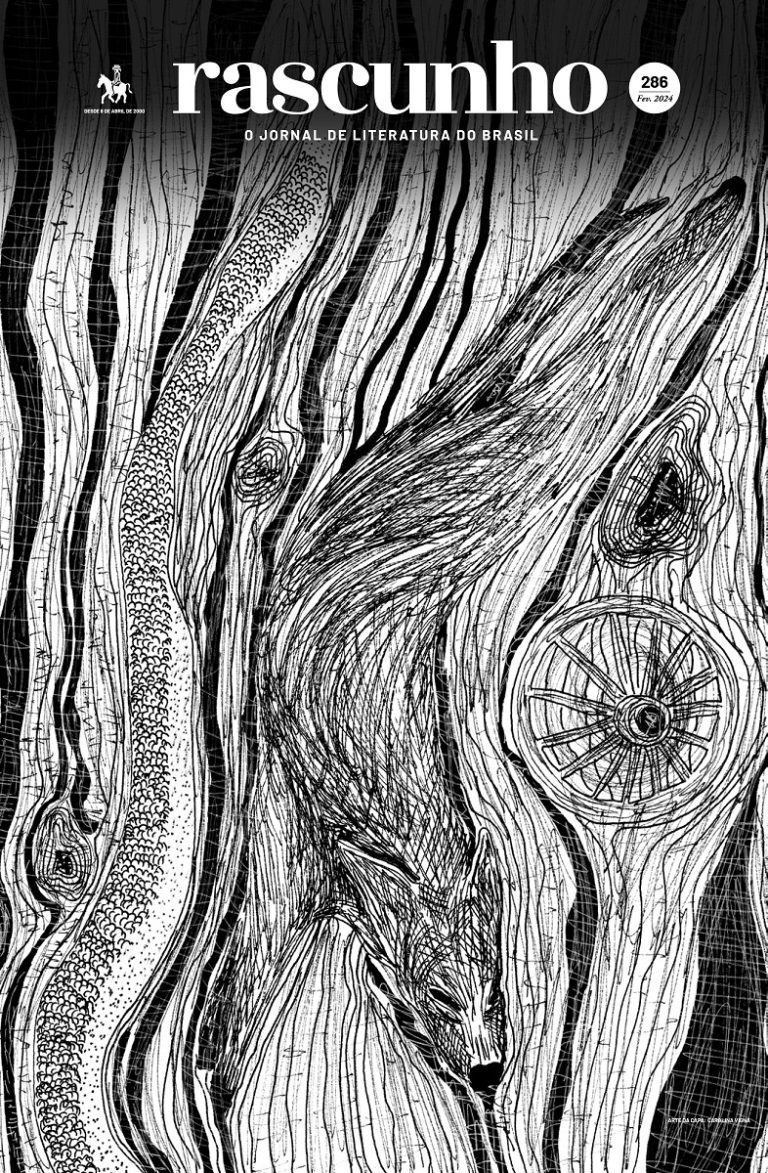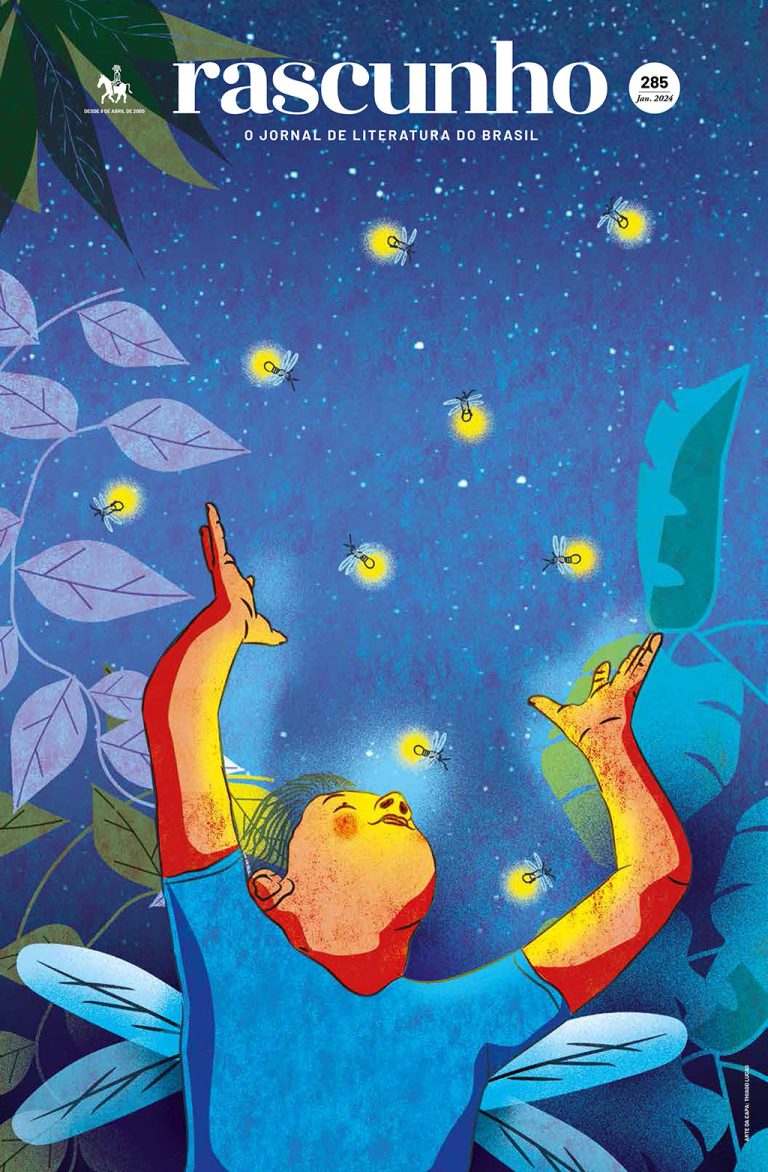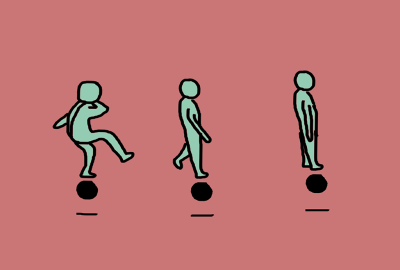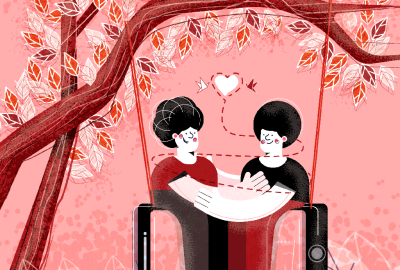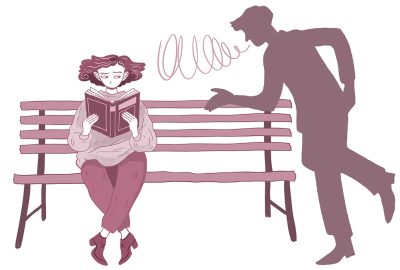Tradução e seleção: André Caramuru Aubert
Pastoral symphony Nº 1
Two finger Arrangement
Far thunder of the coming sun; ablaze
At horizon that wild green rush bursts with the dawn;
Spring winds run in the valleys with the days,
The choking claw-down grip from their hearts torn
In a tossing flame of flowers their quick feet run;
While the white blizzards shriek in the North heaven,
In terror from the exulting season driven,
Ride their gray clanging seas out of the sun;
Polar eagle and owl scream, and retire
In their wrecked storms nurtured, dreading the warm light;
Dizzy with ecstasy for the warm light
Birds dance from the soaring sun, nurtured in fire,
Dazing the vales of the flowered time with songs:
And shall the song and dance of the singers go?
When from the sun’s frenzy and cruel snow
That nurtured them, hung murderous in the wind,
The bearded ravens gather; sudden their throngs
Flock, blotting day, and swirling darkly and roaring, fall
Bringing night.
Sinfonia pastoral Nº 1
Arranjo para dois dedos
Trovão distante do sol que chega; em chamas
No horizonte aquele verde junco irrompe com a aurora;
Ventos primaveris viajam pelos vales ao longo dos dias,
As garras apertadas de seus corações dilacerados, e
Sobre flores em chamas seus pés ligeiros correm;
Enquanto as brancas nevascas berram nos céus do norte,
Aterrorizadas pela exultante estação que avança,
Conduzindo seus ressoantes e cinzentos céus para longe do sol;
Gritam o urso polar e a coruja, recolhendo-se
Para suas ruinosas e bem nutridas tempestades, com medo da luz cálida;
Extasiados e apalermados pela luz cálida,
Pássaros dançam ao sol que se eleva, nutridos pelo fogo,
Atordoando com suas canções os vales floridos:
E irão também as canções e as danças dos cantores?
Quando, do frenesi do sol e da neve cruel
que os nutriram, dependurados no vento os mortíferos e
Barbados corvos se reunirem; e de repente seus ruidosos
Rebanhos, apagando o dia, rugindo e rodopiando, sinistros, caírem
trazendo a noite.
…
Snowdrop
Now is the globe shrunk tight
Round the mouse’s dulled wintering heart.
Weasel and crow, as if moulded in brass,
Move through an outer darkness
Not in their right minds,
With the other deaths. She, too, pursues her ends,
Brutal as the stars of this mouth,
Her pale head heavy as metal.
Floco de neve
Agora é o globo muito encolhido
Em volta do invernal coração do camundongo
Doninhas e corvos, como se moldados em bronze,
Movem-se na escuridão lá de fora
Não muito preocupadas
Com as outras mortes. Ela, também, persegue seus fins,
Brutais como as estrelas desta boca,
Sua cabeça, pálida, pesada como metal.
…
Still Life
Outcrop stone is miserly
With the wind. Hoarding its nothings,
Letting wind run through its fingers,
It pretends to be dead of lack.
Even its grimace is empty,
Warted with quartz pebbles from the sea’s womb.
It thinks it pays no rent,
Expansive in the sun’s summerly reckoning.
Under rain, it gleams exultation blackly
As if receiving interest.
Similarly, it bears the snow well.
Wakeful and missing little and landmarking
The fly-like dance of the planets,
The landscape moving in sleep,
It expects to be in at the finish.
Being ignorant of this other, this harebell,
That trembles, as under threats of death,
In the summer turf’s heat-rise,
And in which — filling veins
Any known name of blue would bruise
Out of existence — sleeps, recovering,
The maker of the sea.
Natureza morta
A pedra na superfície é avarenta
Com o vento. Acumulando seus nadas,
Deixando que o vento corra por entre seus dedos,
Ela finge estar morta de fome.
Até mesmo suas expressões são vazias,
Nauseada com os seixos de quartzo do ventre do mar.
Ela pensa que nem aluguel paga,
Expansiva na contabilidade do sol de verão.
Sob a chuva, ela cintila exultante, negra,
Como se recebesse juros.
E da mesma maneira lida bem com a neve.
Desperta, pouco deixando escapar e marcando
A dança ao estilo das moscas dos planetas,
A paisagem se movendo enquanto dorme,
Ela espera estar lá, no final.
Sem dar atenção à outra, à campainha,
Que treme, como se ameaçada pela morte
No calor crescente da relva de verão,
Na qual — preenchendo as veias
Qualquer nome que se desse à melancolia, feriria
Para fora da existência — dormindo, curando,
O criador do mar.
…
Public bar T.V.
On a flaked ridge of the desert
Outriders have found foul water. They say nothing;
With the cactus and the petrified tree
Crouch numbed by a wind howling all
Visible horizons equally empty.
The wind brings dust and nothing
Of the wives, the children, the grandmothers
With the ancestral bones, who months ago
Left the last river,
Coming at the pace of oxen.
TV de bar
Numa encosta escarpada do deserto
Exploradores encontraram água suja. Não falam nada;
Com o cacto e a árvore petrificada
Agachados e entorpecidos pelo vento uivando e todos
Os horizontes visíveis igualmente vazios.
O vento traz poeira e nada
Das esposas, dos filhos, das avós
Que com seus ossos ancestrais, dois meses atrás
Deixaram o último rio,
Vindo a passos de boi.
…
Fighting for Jerusalem
The man who seems to be dead
With Buddha in his smile
With Jesus in his stretched out arms
With Mahomet in his humbled forehead
With his feet in hell
With his hands in heaven
With his back to the earth
Is escorted
To his eternal reward
By singing legions
Of what seem to be flies
Guerreando por Jerusalém
O homem que parece estar morto
Com Buda em seu sorriso
Com Jesus em seus braços estendidos
Com Maomé em sua testa humilde
Com seus pés no inferno
Com suas mãos no céu
Com suas costas na terra
É escoltado
Para a eterna recompensa
Por legiões cantando
Que parecem ser moscas
…
The door
Out under the sun stands a body.
It is growth of the solid world.
It is part of the world’s earthen wall.
The earth’s plants — such as the genitals
And the flowerless navel
Live in its crevices.
Also, some of the earth’s creatures — such as the mouth.
All are rooted in earth, or eat earth, earthy,
Thickening the wall.
Only there is a doorway in the wall —
A black doorway:
The eye’s pupil.
Through that doorway came Crow.
Flying from sun to sun, he found this home.
A porta
Lá fora sob o sol há um corpo.
Do mundo sólido crescido.
Ele é parte da parede de terra do mundo.
As plantas da terra — como os genitais
E o umbigo sem flores
Vivem em suas fendas.
E também algumas das criaturas da terra — como a boca.
Todas são enraizadas na terra, ou comem terra, terrena,
Engrossando a parede.
Mas há uma soleira na parede —
Uma soleira negra:
A pupila do olho.
Através daquela soleira veio o Corvo.
Voando de sol a sol ele encontrou este lar.
…
Chlorophyl
She sent him a blade of grass, but no word.
Inside it
The witchy doll, soaked in Dior.
Inside it
The gravestone. Inside it
A sample of her own ashes. Inside it
Her only daughter’s
Otherwise non-existent smile.
Inside it, the keys
Of a sycamore.
Inside those, falling
The keys
Of a sycamore. Inside those,
Falling and turning in air the
Keys
Of a sycamore.
Clorofila
Ela lhe enviou uma lâmina de relva, sem nada dizer.
Dentro dela
A boneca bruxa, encharcada em Dior.
Dentro dela
A lápide. Dentro dela
Uma amostra de suas próprias cinzas. Dentro dela
O sorriso de sua única
Filha, fora isso, inexistente.
Dentro dele, as chaves
De um plátano.
Dentro delas, caindo
As chaves
De um plátano. Dentro delas,
Caindo e girando no ar, as
Chaves
De um plátano.
…
Visitation
All night the river’s twists
Bit each other’s tails, in happy play.
Suddenly a dark other
Twisted among them.
And a cry, half sky, half bird,
Slithered over roots.
A star
Fleetingly etched it.
Dawn
Puzzles a sunk branch under deep tremblings.
Nettles will not tell.
Who shall say
That the river
Crawled out of the river, and whistled,
And was answered by another river?
A strange tree
In the water of life —
Sheds these pad-clusters on mud-margins
One dawn in a year, her eeriest flower.
Visita
A noite toda os rios se contorcem
Mordendo as caudas um do outro, em alegre brincadeira.
De repente um outro, escuro
Se contorce entre eles.
E um grito, meio céu, meio pássaro,
Desliza sobre as raízes.
Uma estrela
Fugaz o causticou.
A aurora
Atrapalha um galho submerso em profundos tremores.
As urtigas nada falarão.
Quem dirá
Que o rio
Rastejou para fora do rio, e assobiou,
Recebendo una resposta de outro rio?
Uma estranha árvore
É a água da vida —
Que arremessa buquês nas margens barrentas
Uma aurora por ano, a sua mais sinistra flor.

